Sikhs — people of peace, living for the sake of war
Categories: Asia | Nations | World
By Pictolic https://pictolic.com/article/sikhs-people-of-peace-living-for-the-sake-of-war.htmlSikhism is one of the many Indian religions. Some people think it's an ethnic group, but it's not. The majority of Sikhs are Punjabis and in In India, they live quite compactly, on the territory of two states — Punjab and Hariana. Despite this, you can meet colorful men in bright turbans in many countries of the world — there are Sikh communities in the United States, Australia, Europe, Latin America, China and even in Japan.
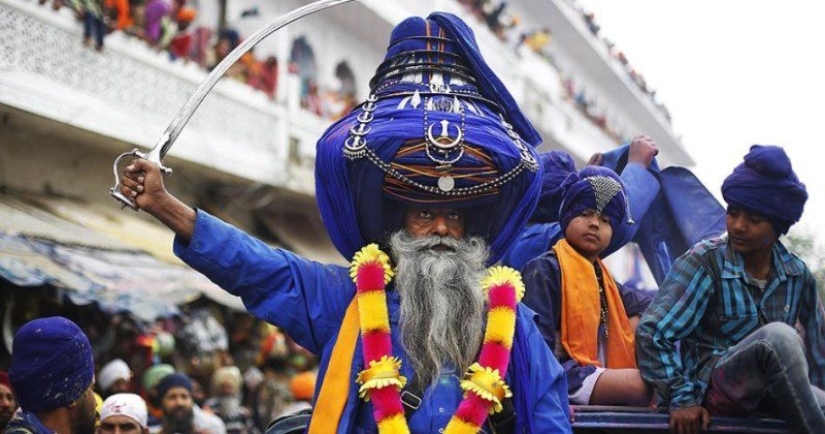
An untrained person among the Sikhs has a hard time at first. Firstly, all representatives of this religion prefer almost the same traditional clothing, and secondly, they have the same last names: men-Singh (lion), and women-Kaur (lioness). Therefore, if you fall behind your friend Sikh in the crowd of co-religionists-you will not be able to call him by his last name.
Representatives of Sikhism are distinguished by a complete contempt for death. Sikhs believe that everything in this world happens according to the will of God. When a person dies, he does not go to heaven or hell, but dissolves in the all-encompassing supreme love. It is especially honorable for these people to die defending the truth. This combination makes Sikhs the perfect warriors — fearless and disciplined, as has been proven in many military conflicts around the world.
Sikhs were highly regarded in the army of colonial Britain, as well as in the modern armies of the United States and the United States. Great Britain. In India, Sikhs have been a military elite for many centuries. Despite the fact that any work is honored among these people, they always give preference to the military craft.
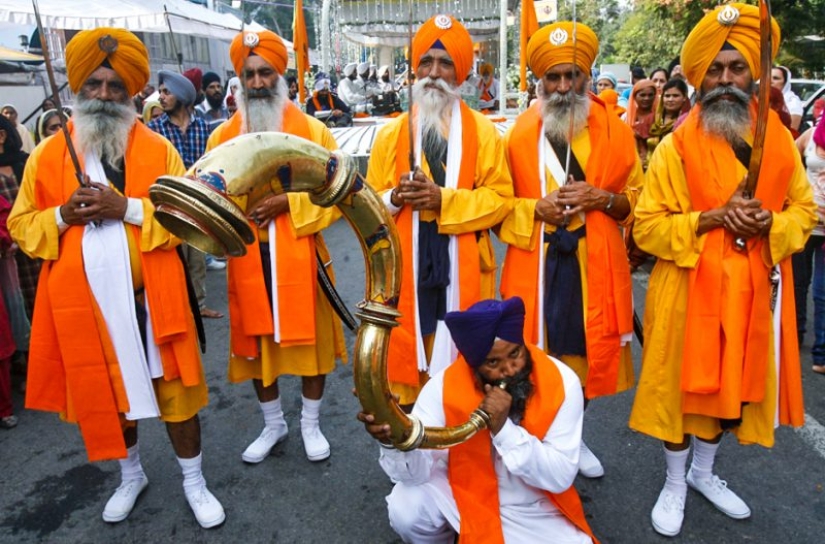
Sikhism was born at the junction of Hinduism and Islam in the XV century and co-exists with them on the same land, without losing its uniqueness. It is one of the few religions that is tolerant of people of any faith. Sikhs believe that all religions speak about the same thing, only this basic idea is stated everywhere differently.
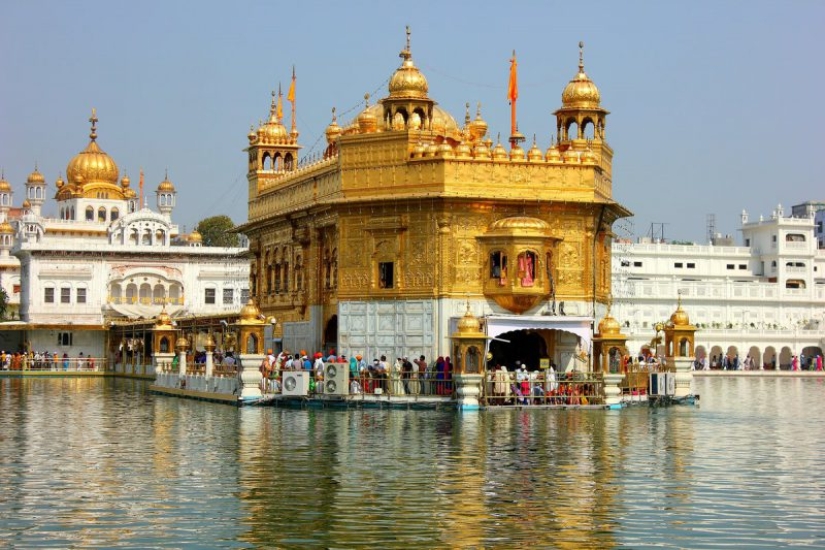
Golden Temple in Amritsar, Punjab, India
In 1984, the Indian army was able to storm the Golden Temple with great difficulty, killing 492 of its defenders who opposed the army without weapons. The Sikh holy building was badly damaged, but it was quickly restored. Warriors from Punjab did not forgive the authorities for the sacrilege and the death of co-religionists — the country's Prime Minister Indira Gandhi was killed in the same year by her own Sikh bodyguard.
Sikhism is a very easy-to-understand religion. The faith is based on 10 spiritual teachers, and all who profess Sikhism are considered their students. They believe that there is one Creator God for all, who represents infinite love and mercy, but it is not given to the human mind to comprehend him, so you just need to believe and live honestly.
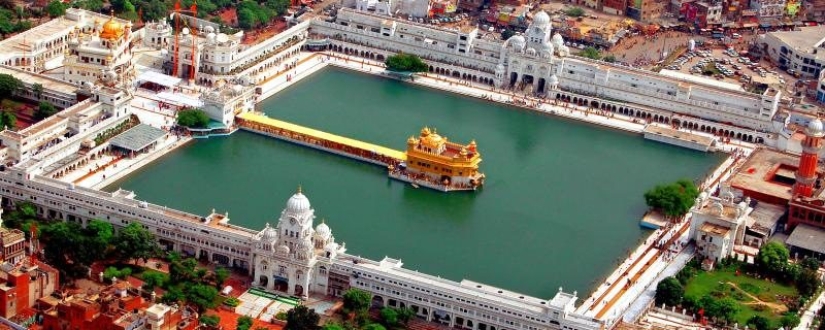
The Golden Temple
They believe that when they die, they go back to their Creator, and then they can be reborn many times in another human body. Such concepts as heaven, hell, sin and the afterlife do not exist in this religion, and fasting and good deeds do not affect the subsequent lives of the human soul. As a mandatory pilgrimage, every Sikh must wash the floors of the Golden Temple at least once in his life — the work of these people is elevated to the rank of a cult.
The Sikhs do not deny the existence of other gods and spirits, but they believe that they are too insignificant and do not deserve worship. God the creator does not require sacrifices from people, and he does not need suffering and feats for the sake of faith — meditation and prayers are enough. Sith, even those who have a spiritual rank, are obliged to have a family — for them, a home and children are among the highest values. The only exception is the monks of the Khalsa order, who devote themselves to meditation and take a vow of celibacy at initiation. It should also be added that early marriage, polygamy, and caste discrimination among Sikhs are prohibited, as well as divorce.
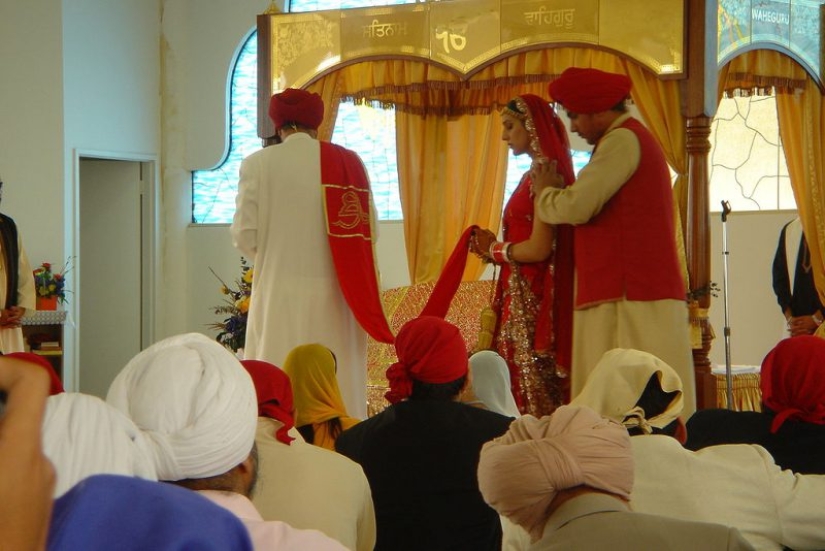
Wedding ceremony
Another mandatory requirement for every believer is to share material goods. The Golden Temple itself, lined with real precious metal, and all the riches of the communities located in different parts of the world are values earned by common labor. Charity is the most important virtue in Sikhism, so anyone who needs help can find food and shelter in the gurudwara temples.
But at the same time, it is important to know that a Sikh will never take money as alms — he will agree to work it off. Also, they never give money — all the sufferers are helped with clothing, food or medicines. According to Sikhism, money can only be earned, but not received as a gift.
Every Sikh man has five ritual items with him, which he does not part with even when sitting in a strict suit in an office in Manhattan: a dagger, a small comb, a steel bracelet, knee-length underpants and hair untouched by scissors.
Every Sikh man carries a small ritual dagger with him as a sign of his willingness to defend his beliefs and shrines. This thing, which was once a real weapon, is now only a symbol, reminding of the duty to the co-religionists and the Creator. A Sikh dagger is most often inserted into a turban, but it can also be hidden under clothing.

Comb, bracelet, and dagger
The comb is designed to support long hair — it is made exclusively of wood. A Sikh bracelet is worn on the hand and, once, like a dagger, this object was a weapon. The edges of the bracelet were sharpened and skillfully used during hand-to-hand fights.
Special mention must be made of the colorful turbans of the Sikhs. This object is sacred to any man, and if you knock it off the owner's head, you can pay with your life. Even a tuxedoed Sikh will not give up his headdress, so as not to humiliate his dignity. The most respected elders of the communities have turbans of enormous size. Because of this, their owners are often teased, of course, on the sly.
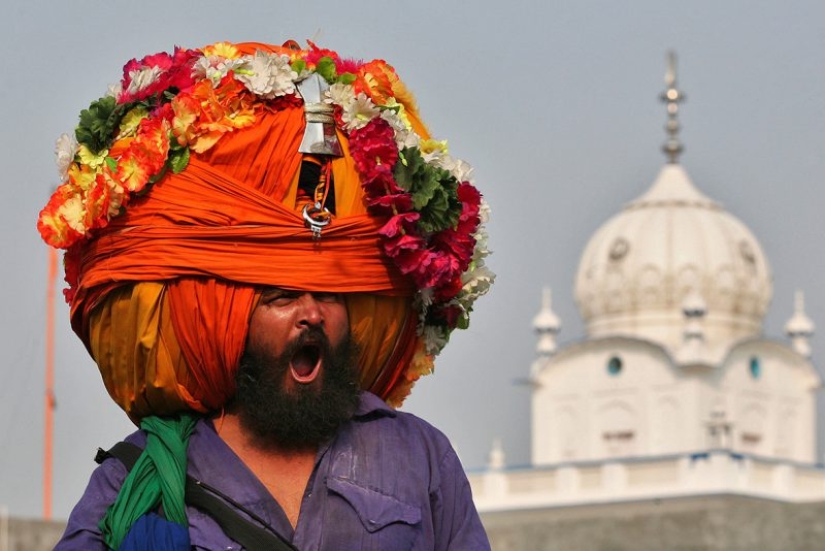
It is interesting that Sikhs working in the NYPD observe the customs of not parting with their hats. Also, men of this faith can be recognized by the turban in any army in the world — Sikhs are allowed not to part with the prescribed attributes of the faith, even in military and public service.
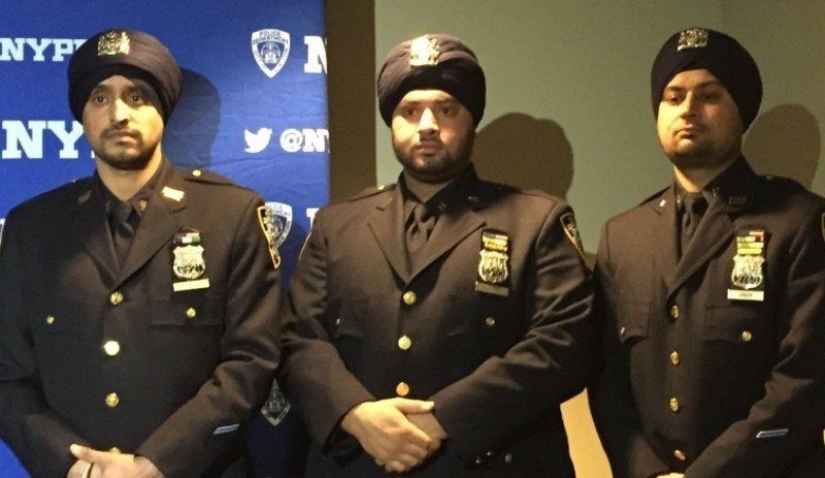
Sikhs police officers
The only Sikh Royal guardsman in the UK, Jatinderpal Singh, does not take up his post in a traditional bear hat, but in a black turban.
Jatinderpal Singh in the Queen's service
The theme of war and a decent death in battle plays a big role in this religion. A couple of centuries ago, a Sikh had no right to die of old age in his bed. If there were no wars, then once a year in each community there were duels with swords and daggers between young and old men. In the course of such fights, quite real and bloody, the old man could get the desired death in battle.
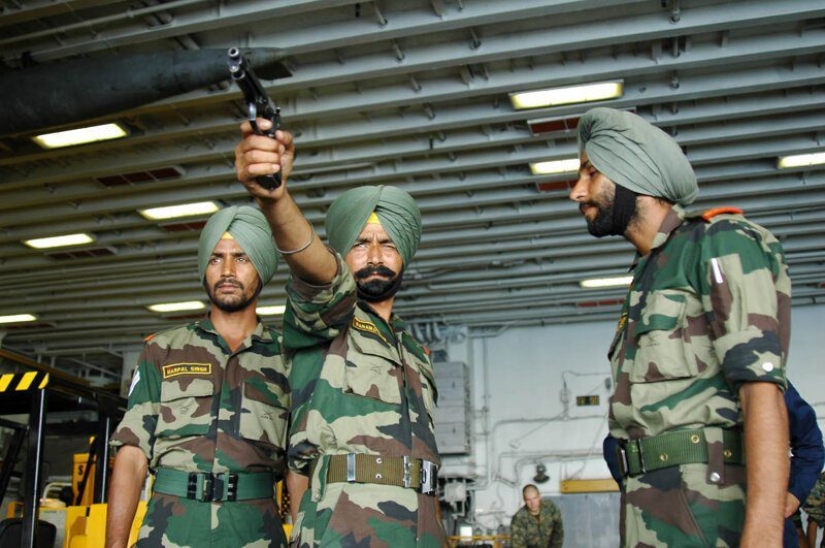
However, a hundred years ago, the chance of dying in bed for a Sikh man was small. Sikhs have always been valued as warriors and were worth their weight in gold in both local and European armies. In the British Indian Army, Sikhs made up the lion's share of the personnel, second only to the Gurkhas. Their military skills, physical strength and endurance, as well as fearlessness, earned high praise in the The first and World War II. In the XX century, more than 80 thousand Sikhs died in military conflicts, and very few in their native land.
Most Sikhs are very well-off people. Wherever people of this faith live, you can see extensive agricultural land, on which both the owners themselves and numerous hired workers work. Education is always held in high esteem, so Sikh children are sent to study at the best universities in the United States, Great Britain and France.

The faith does not allow Sikhs to smoke-the use of tobacco is prohibited within a radius of 1 km from the Golden Temple. Also, Sikhs are committed vegetarians, despise drunkenness and encourage sports. Despite the fact that Sikhs in India are only 1.8% of the total population, they play an important role in the socio-political life of the country. In the Indian army, up to 20% of the command staff are men who profess Sikhism.
Keywords: Faith | Warrior | India | Sikhs | Temple
Post News ArticleRecent articles

This kotmadam not sorry neither forces, nor means to that beloved furry face was happy. In Switzerland, the cats are so sensitive ...

What comes to mind when you mention St. Petersburg? Naturally, the unique architecture, the dank weather and the culture that this ...
Related articles

Thousands of years ago, Chinese builders built settlements where it was possible to move only by boat. In Europe, you can feel the ...

Medieval Mongolian women were a match for their formidable husbands. While men are hiking or hunting, wives should be able to stand ...

The most high-flying military parades were held in the early 70s in India. On Independence Day, iron cars in tuning from folk ...

From the outside it seems that success comes easily. But in fact, behind it there is usually hard work, many failures and, often, ...